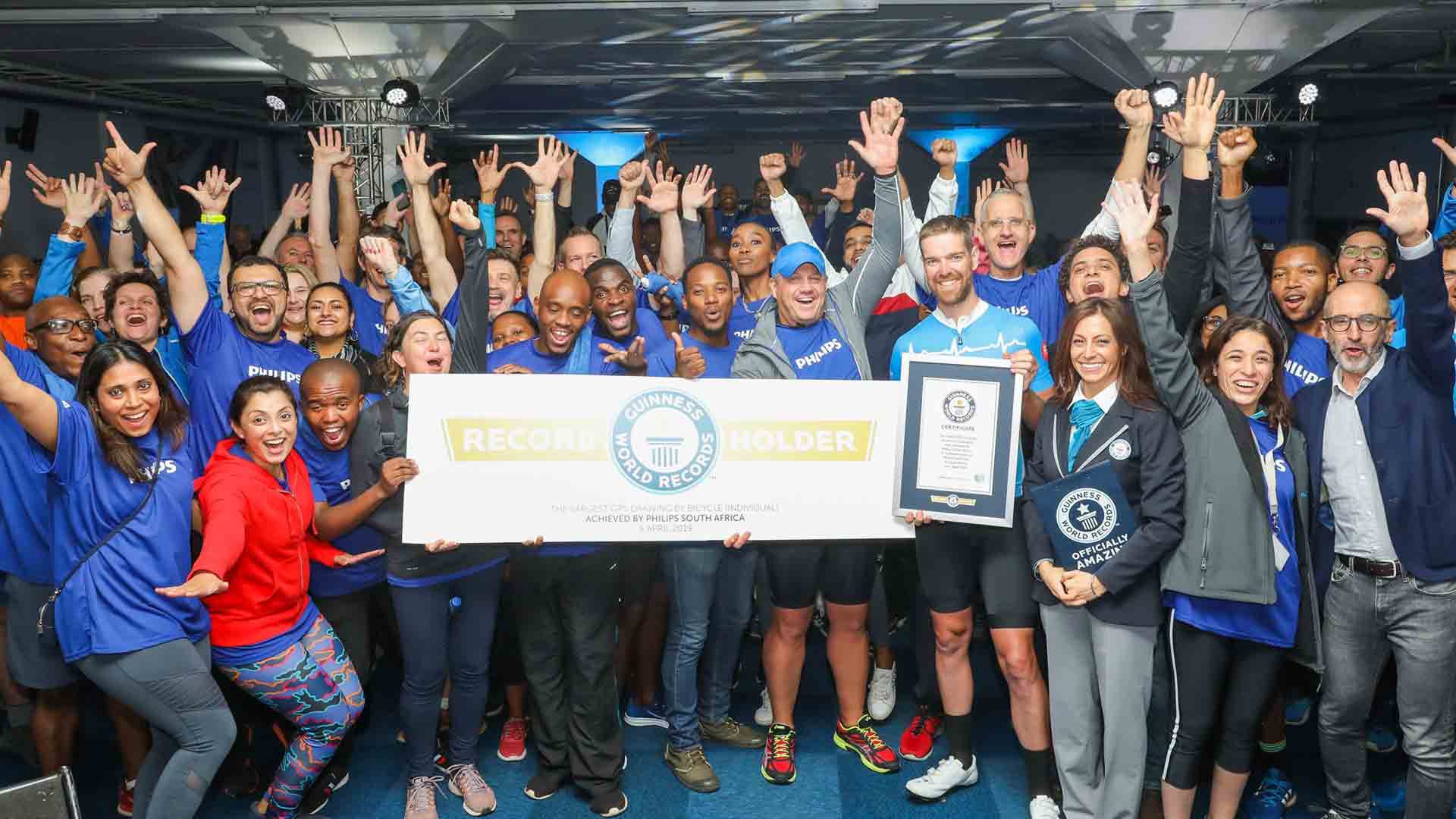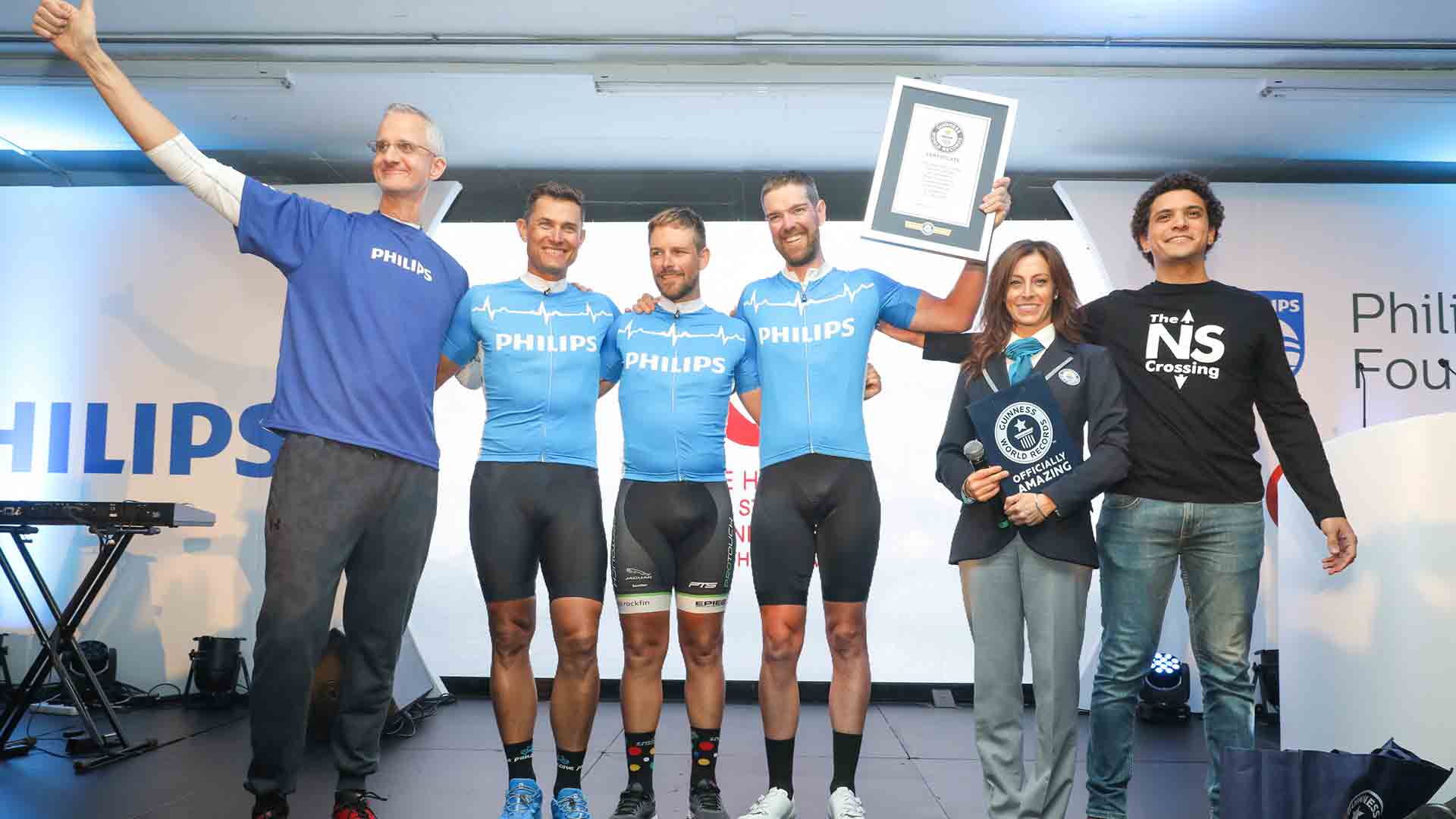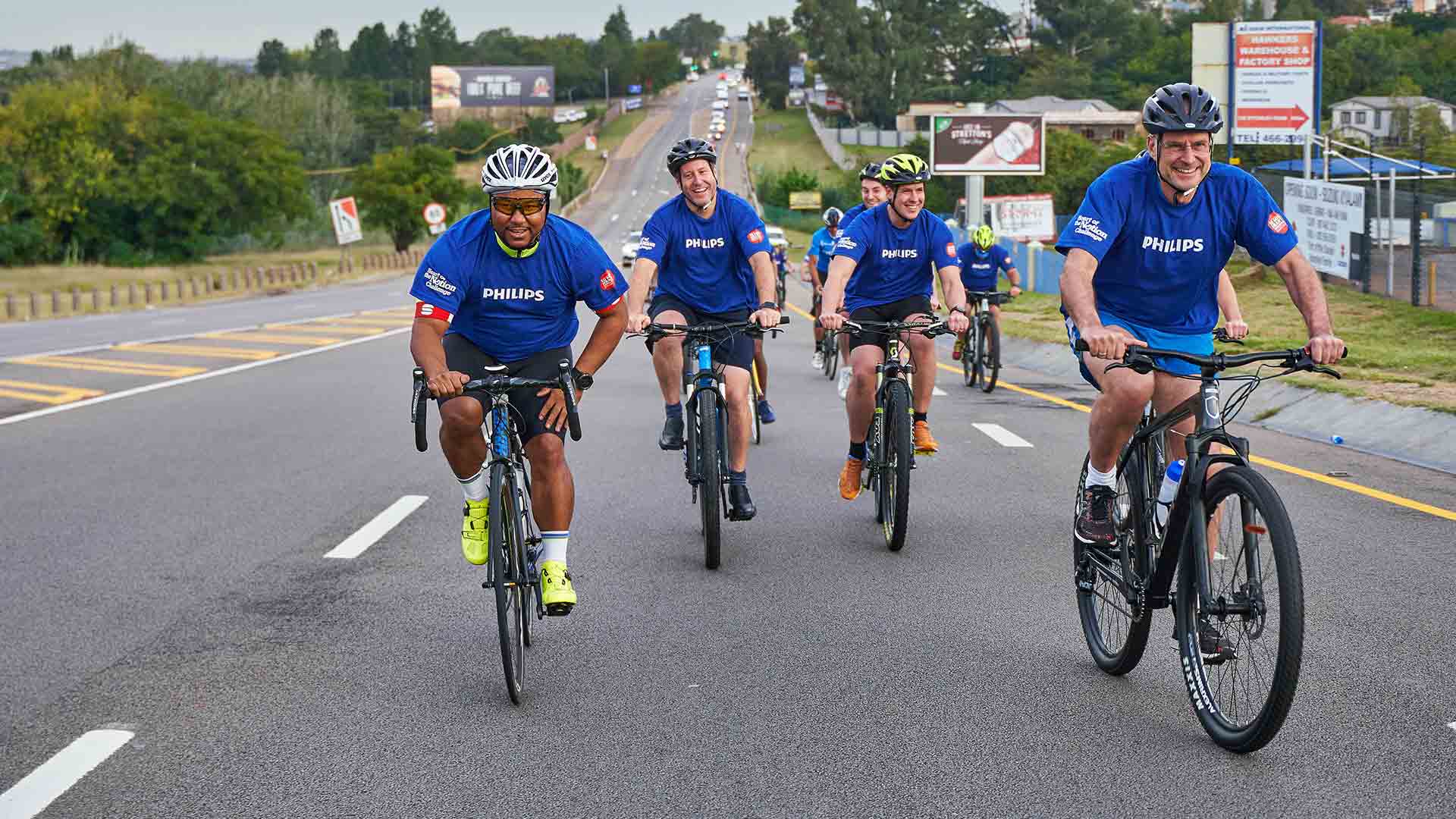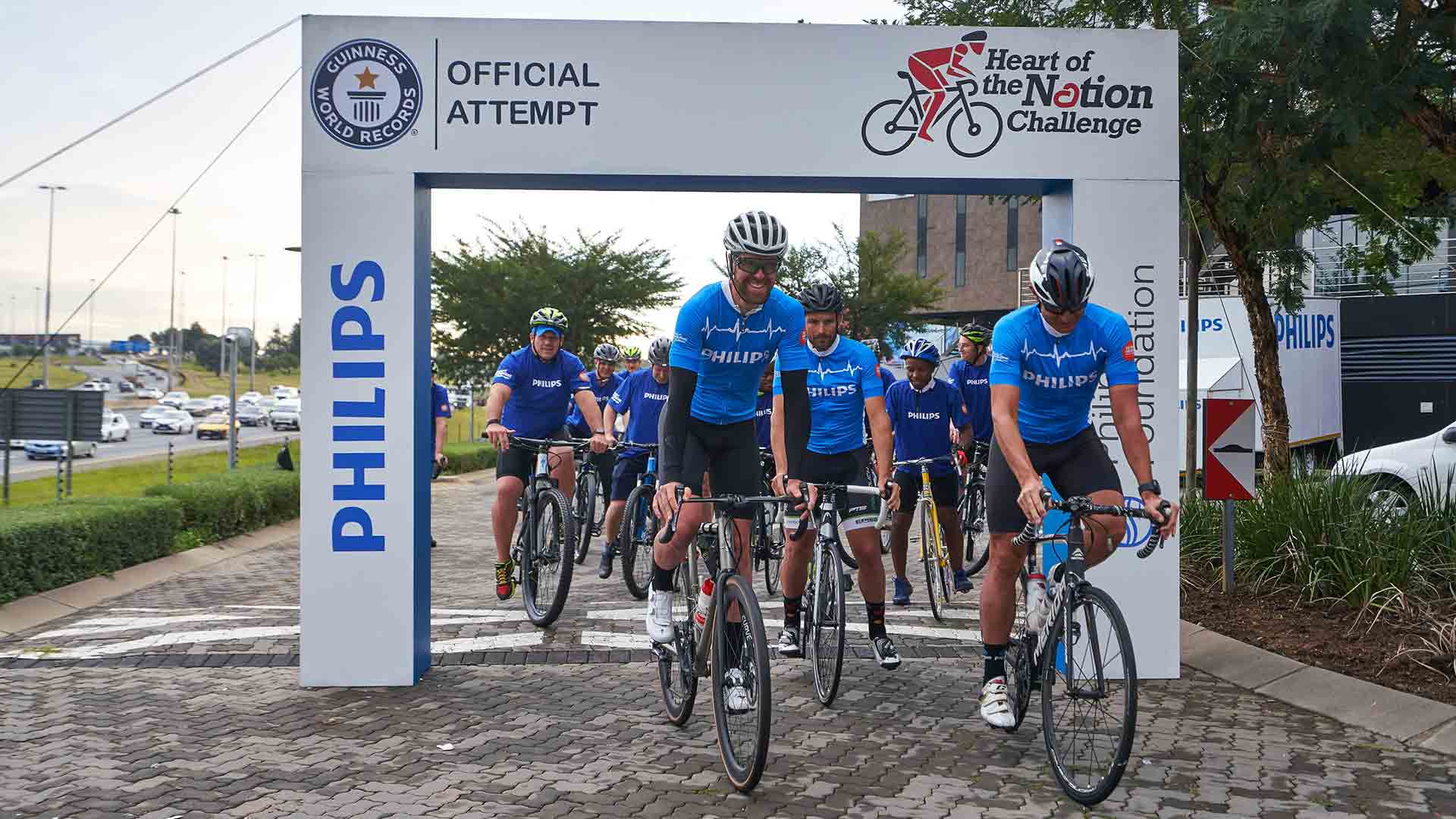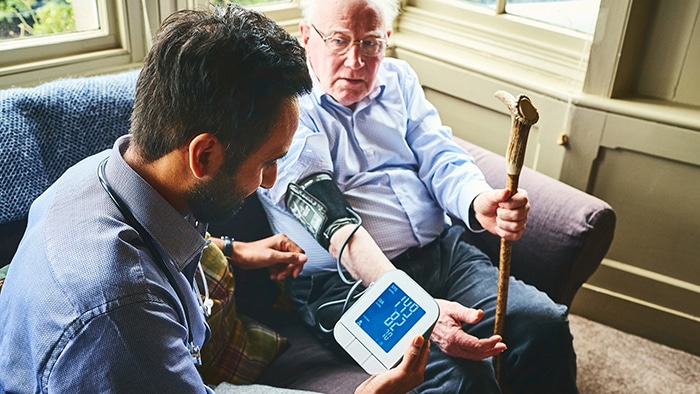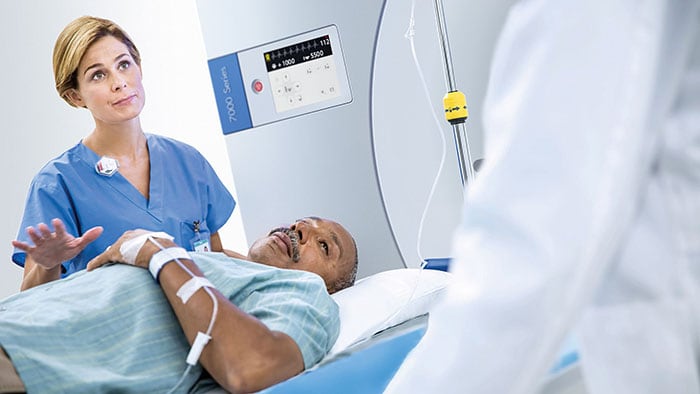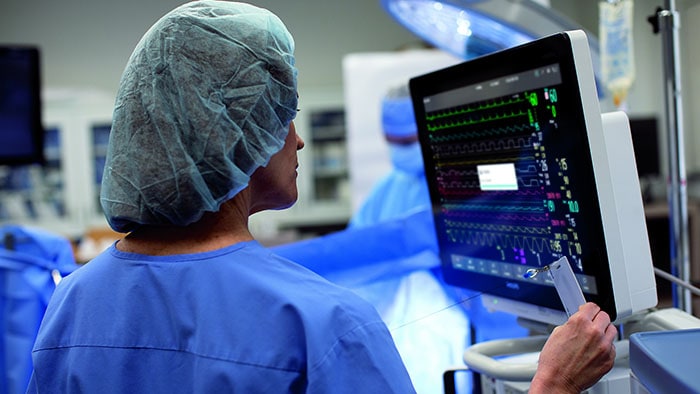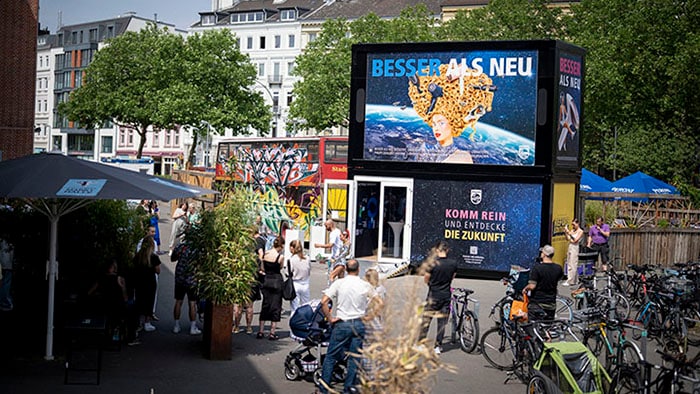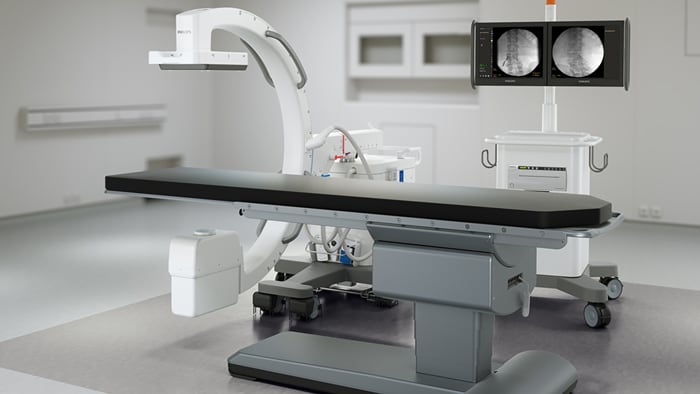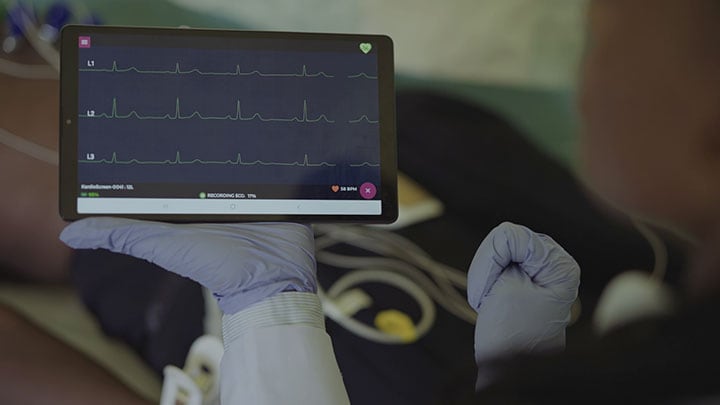Apr 08, 2019
It’s a Guinness World Record! - Philips creates the world’s largest digital heart to shine a spotlight on heart health in South Africa
Philips South Africa has set a Guinness World Record for the world’s largest GPS drawing by an individual on a bicycle in the shape of a digital heart.
Johannesburg, South Africa - Philips South Africa has set a Guinness World Record for the world’s largest GPS drawing by an individual on a bicycle in the shape of a digital heart. The record attempt was undertaken and achieved to commemorate World Health Day (7th April 2019), and was the finale for the month-long Back to Rhythm campaign that was hosted by Philips South Africa in collaboration with the Philips Foundation and the Heart and Stroke Foundation South Africa, (HSFSA).
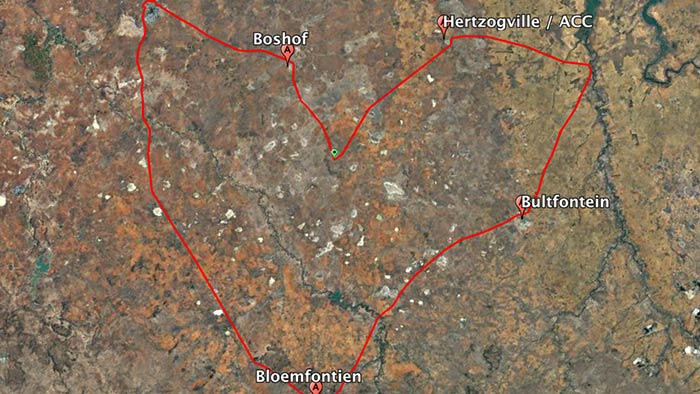
Kevin Benkenstein, took on Philips’ “Back to Rhythm” challenge to cycle 510 kms from Bloemfontein to Kimberley, to Boshof, to Hertzogville, to Bultfontein and back to Bloemfontein, digitally tracking his route to create the world’s largest GPS drawing in the shape of a heart. Kevin and fellow cyclists, Dion Guy and Pieter Seyffertt also cycled across South Africa from Cape Town’s Klein Constantia Estate to the Kyalami Grand Prix Circuit in Johannesburg covering 2,200 kms in under 5-days and replicating the pattern of an ECG heartbeat across the varied terrain. They were accompanied by Philips staff on sections of the ride.

Both these landmark achievements formed part of a much larger Back to Rhythm campaign, aimed at creating public awareness and education around cardiac health, as well as passing on vital information on training (Cardio Pulmonary Resuscitation), BLS (Basic Life Support) and AED resuscitation, and how to prepare healthier food to ensure better heart health and overall wellbeing. The campaign was then amplified through simple, yet impactful solutions.
I can only look back to this achievement with complete pride. It is very rewarding to be a part of an experience where organisations come together to achieve meaningful purpose and impact. I am extremely proud of the fact that we reached such a milestone in South Africa, especially considering that we also set a Guinness World Record in Egypt last year.
Jasper Westerink
CEO, Philips Africa
Heart of the Nation Challenge
Phase 1 of the campaign had been running since early March 2019, in communities across Cape Town and Johannesburg. Residents of both cities were encouraged to get active by participating in stationary biking challenges. Over 2,000 South Africans participated, each cycling for 10-minutes and a combined total of 8,393 kilometers, securing 25 automated external defibrillators (AEDs) that the Philips Foundation had pledged to the HSFSA. The HSFSA will now place the AEDs in public spaces around the country to equip the members of the public with lifesaving capabilities in case of a Sudden Cardiac Arrest (SCA). “I can only look back to this achievement with complete pride. It is very rewarding to be a part of an experience where organisations come together to achieve meaningful purpose and impact. I am extremely proud of the fact that we reached such a milestone in South Africa, especially considering that we also set a Guinness World Record in Egypt last year.” says Jasper Westerink, CEO, Philips Africa. “We are committed to our goal of creating healthier communities by 2030, and with the support of the Philips Foundation, our Back to Rhythm campaign has elevated this vision. Moving forward, I can’t wait to see how we can collectively build on this momentum to drive bigger conversations and sustainable action around the need to prioritise heart health as a nation,” says Westerink “We have a critical role to play as an organisation in ensuring that South Africans are educated and informed about heart health. This understanding influenced our decision to get involved and collaborate with Philips on the Back to the Rhythm campaign,” says Professor Pamela Naidoo, CEO of the HSFSA. “The 25 AEDs that the Philips Foundation will provide us will equip citizens with lifesaving technology in public spaces and I cannot be more appreciative of the same. This campaign has played a critical role in reinforcing good habits, like getting active and eating balanced meals, aimed to firstly prevent future incidence of heart disease, and secondly to educate South Africans on how to save a life in the unfortunate event that preventative measures were not effective often due to over-riding genetic factors.” “When Philips approached me to take on the challenge to attempt a Guinness World Record to raise awareness on heart health, it really hit home as I lost my father to a cardiovascular disease. I am proud to have represented such a powerful campaign and hope that South Africans continue to see the importance of healthy living even beyond this campaign and World Health Day,” says Kevin Benkenstein, one of the team members who set the record. “Raising awareness on the growing incidence of CVD; especially SCA and reinforcing the need for a healthy lifestyle and healthy diet are core components of the Back to Rhythm campaign, which will continue with several different informative and educative programmes in the coming months. To successfully drive down future incidences of heart disease, we hope to see these conversations and training sessions bring about sustainable lifestyle changes in local communities; empowering South Africans to live longer, healthier, and more productive lives.” concludes Westerink.
Follow #BackToRhythm #RideToJhb on Facebook and Twitter; and get more information on the microsite. Attached, as notes to the editor: - Philips HeartStart AED backgrounder, including information about SCA. - Locations of the Heart of the Nation challenge - Back to Rhythm campaign backgrounder, including information about preceding campaigns in Kenya and Egypt. For further information, please contact: Radhika Choksey Philips Group Communications - Africa Tel: +31 62525 9000 E-mail: radhika.choksey@philips.com
About Royal Philips
Royal Philips (NYSE: PHG, AEX: PHIA) is a leading health technology company focused on improving people's health and enabling better outcomes across the health continuum from healthy living and prevention, to diagnosis, treatment and home care. Philips leverages advanced technology and deep clinical and consumer insights to deliver integrated solutions. Headquartered in the Netherlands, the company is a leader in diagnostic imaging, image-guided therapy, patient monitoring and health informatics, as well as in consumer health and home care. Philips generated 2018 sales of EUR 18.1 billion and employs approximately 77,000 employees with sales and services in more than 100 countries. News about Philips can be found at www.philips.com/newscenter.
About the Philips Foundation
The Philips Foundation is a registered charity that was established in July 2014 as the central platform for Philips’ CSR activities. Reflecting our commitment to United Nations Sustainable Development Goals 3 (Ensure healthy lives and promote well-being for all at all ages) and 17 (Revitalize the global partnership for sustainable development), the mission of the Foundation is to reduce healthcare inequality by providing access to quality healthcare for disadvantaged communities. We do this by deploying Philips’ expertise, innovative products and solutions, by collaborating with key partners around the world and by providing financial support for collaborative activities.
About the Heart and Stroke Foundation SA
The Heart and Stroke Foundation South Africa (HSFSA) plays a leading role in the fight against preventable heart disease and stroke, with the aim of seeing fewer people in South Africa suffer premature deaths and disabilities. The HSFSA, established in 1980 is a non-governmental, non-profit organization which relies on external funding to sustain the work it carries out. The HSFSA aims to reduce the cardiovascular disease (CVD) burden in South Africa and ultimately on the health care system of South Africa. Our mission is to empower people in South Africa to adopt healthy lifestyles, make healthy choices easier, seek appropriate care and encourage prevention. For more information visit www.heartfoundation.co.za. You can also find us on www.facebook.com/HeartStrokeSA and www.twitter.com/SAHeartStroke.

